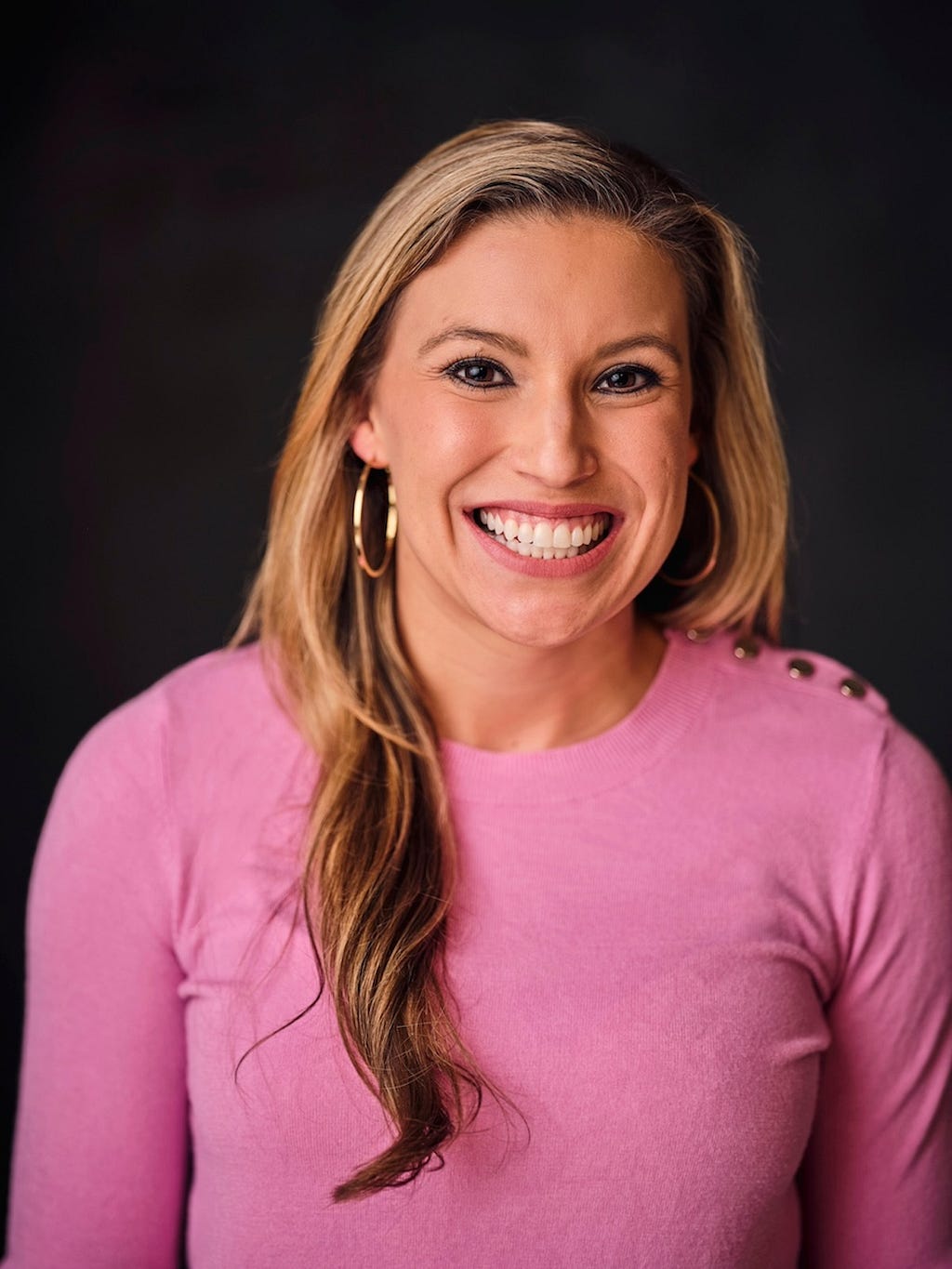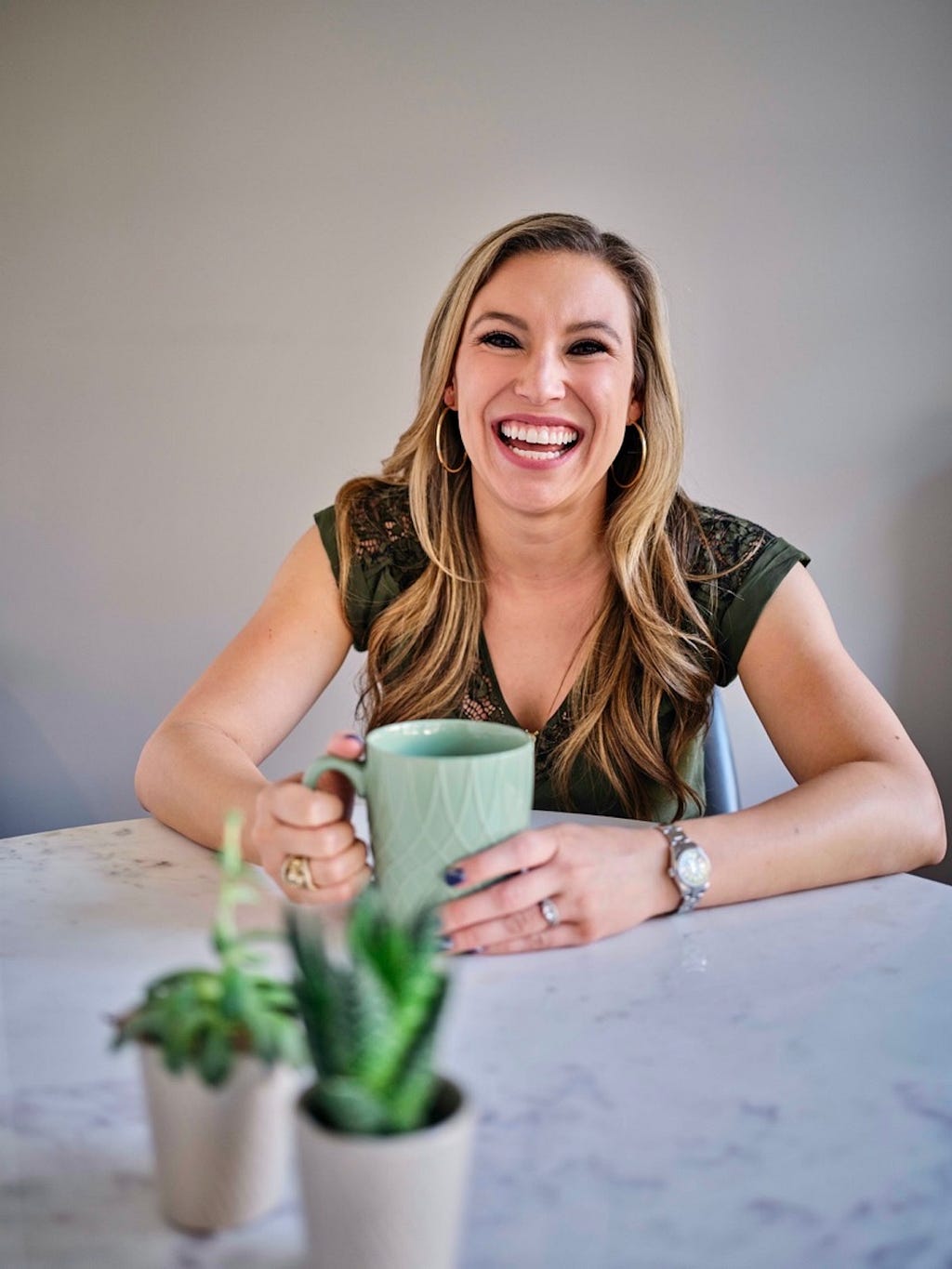Alexa Shank of Relief & Recovery Psychotherapy On How To Support A Loved One Who Is Struggling With An Eating Disorder

Try to separate the “eating disorder” from your loved one. The eating disorder by nature involves deceptive behaviors related to food, dieting, or exercise. It’s essential to approach individuals from a place of curiosity and compassion rather than blaming them for “lying” or hiding behaviors. Eating disorders are illnesses, just like any other physical illness. So oftentimes, people feel helpless to resist the urges to engage in these behaviors and are not deliberately being deceptive. People with eating disorders may even express a desire to get better but feel incapable of refraining from the habits that have become such a huge part of their life.
Eating disorders are complex mental health conditions that affect millions worldwide, transcending age, gender, and cultural boundaries. They are not simply about food but involve a range of psychological, physical, and social issues. Supporting a loved one through this struggle can be challenging, requiring understanding, patience, and knowledge of the right approaches to truly make a difference.
In this series, we aim to shed light on the most effective ways to offer support, understanding, and hope to those battling an eating disorder. We are talking to psychologists, nutritionists, doctors, therapists, and survivors, who can provide valuable perspectives on nurturing recovery, fostering resilience, and promoting healthy relationships with food and body image. As a part of this series, we had the pleasure of interviewing Alexa Shank.
Alexa Shank is a licensed psychotherapist and owner of Relief and Recovery Psychotherapy in Houston, TX. Alexa is a Certified Eating Disorder Specialist and works with adults and adolescents on improving their relationships with food and exercise. Alexa draws on her own background in ballet, drill team, and as a former NBA dancer, to help elite athletes and performance artists improve their body image, avoid harmful dieting practices, and manage pressures related to their sport. In addition to providing counseling, Alexa enjoys presenting and educating on mental health topics in the community.
Thank you so much for joining us in this interview series. Before we dive into our discussion, our readers would love to “get to know you” a bit better. Can you share with us the backstory about what brought you to your specific career path?
Growing up in the dance and cheer world I saw from a young age that there were very few resources available to help with body image concerns, food struggles and performance pressures that inevitably arise. I decided from a young age that I wanted to be able to work in a field that would help me fill that gap. So, after earning my Master’s Degree in Clinical Counseling, I went on to pursue training and certification to become a Certified Eating Disorder Specialist. Now, I am able to work with clients and provide the support and psychoeducation that is so lacking in the sports and performing arts industries. I can help athletes and dancers manage their mental health and recover from eating disorders so that they can continue to be successful in their sports.
Can you please give us your favorite “Life Lesson Quote”? Can you share how that was relevant to you in your life?
The quote that really inspires me is by Winston Churchill: “Success is not final, failure is not fatal; it is the courage to continue that counts.” It has always been a reminder to me when I have had obstacles in my path or have had setbacks in my life, that it’s important to persevere.
Are you working on any exciting new projects now? How do you think that will help people?
I recently became trained in a therapy known as Radically Open Dialectical Behavior Therapy (RO DBT) and am working towards setting up some group classes for teens and adults to learn the skills. The RO DBT skills are particularly useful for anyone with a personality style characterized by excessive self-control. Someone who is perfectionistic to their own detriment, highly rigid, anxious and people pleasing. These are frequently characteristics of individuals with eating disorders and therefore it can be a very useful tool for people working towards recovery.
According to this study cited by the National Association of Anorexia Nervosa and Associated Disorders, at least 30 million people in the U.S. of all ages and genders suffer from an eating disorder. Can you suggest 3–5 reasons why this has become such a critical issue recently?
- Research has indicated that the pandemic brought about a major surge in eating disorders that people are still trying to recover from. In adolescents alone, numbers illustrate that eating disorders more than doubled. People spent more time at home and were unable to stick to their normal eating schedules/patterns. Feelings of boredom, loneliness, and feeling out of control, along with the general sense of chaos in the world led to more people utilizing food to cope through restriction of their diets as well as increased mindless eating and increased exercise that for many people spiraled out of control. Because a lot of elements associated with eating disorders are praised by society, such as “healthy eating,” exercise, and weight loss, people often don’t realize or acknowledge that they have a problem until it reaches a critical point. I think a lot of what began during Covid has started to come to a head.
- Additionally, social media continues to be a major contributor to eating disorder behaviors. With more innovations in AI technology and photo editing techniques it’s increasingly hard to differentiate between which images are real and which are fake or doctored. You can no longer easily look at a photograph and identify whether there has been a filter applied or if the individual is even a real human! With all these images manipulated to appear “perfect,” people continued to develop even more distorted views on what is realistic and what’s not. Social media is fully promoting unrealistic beauty standards and leading to body dysmorphia.
- The recent popularity of weight loss injections may also be a contributor to the rise of eating disorders. Research has shown that the rapid weight loss associated with these drugs can be appealing to individuals who already have a precarious relationship with food and their bodies. Because these medications suppress peoples’ appetites, they can lead to increasingly severe and extreme restrictive eating. This is how eating disorders often get started. When people restrict their food intake and lose weight they receive praise from others, feel good about themselves, and may decide to double down and restrict more. Before you know it, they are preoccupied with food and their body and stuck in a vicious cycle of restriction and weight loss. Furthermore, many people report feeling ravenously hungry after discontinuing the injections, likely due to the sustained period of malnourishment. This can lead to binge eating and weight gain ultimately triggering more yo-yo dieting or disordered behaviors.
Based on your insight, what can concrete steps can a) individuals, b) corporations, c) communities and d) leaders do to address the core issues that are leading to this problem?
Individuals can protect themselves by curating their social media accounts and being critical consumers of what they see. Unfollow people who are triggering or lead you to engage in unhealthy comparison. Practice checking the facts on the pictures and videos you view. Ask yourself, could there be a filter on this? How do I know this is real content? Is it possible I’m making an assumption about what I see? Don’t believe everything online is reality!
Medical corporations and providers could help the issue of eating disorders by being more discerning about who they prescribe weight loss drugs to. It would also be great if there was increased transparency about the reality of some of the dangerous disordered eating habits that can arise with the use of these medications.
Additionally, leaders and communities can do more to fight diet-culture and fat-phobia. If there was less of a focus on thin bodies and the prioritization of weight above overall health, this would help our society take steps towards greater body positivity and inclusivity, which would ultimately contribute to a decrease in disordered eating.
As you know, one of the challenges of an eating disorder is the harmful,and dismissive sentiment of “why can’t you just control yourself”. What do you think needs to be done to make it apparent that an eating disorder is an illness just like heart disease or schizophrenia?
More accurate information needs to continue to be perpetuated rather than outdated stereotypes about who develops eating disorders and what struggles they encounter. People still rely on depictions they have seen in movies or on social media for their information on eating disorders; typically based solely on anorexia nervosa or bulimia. But, more exposure of the clinical features of lesser-known eating disorders and first-hand accounts from people who have suffered would be really useful.

Here is the main question of our interview. Can you please share with our readers 5 ways to support a loved one who is struggling with an eating disorder? If you can, can you share an example from your own experience?
1 . Try to separate the “eating disorder” from your loved one. The eating disorder by nature involves deceptive behaviors related to food, dieting, or exercise. It’s essential to approach individuals from a place of curiosity and compassion rather than blaming them for “lying” or hiding behaviors. Eating disorders are illnesses, just like any other physical illness. So oftentimes, people feel helpless to resist the urges to engage in these behaviors and are not deliberately being deceptive. People with eating disorders may even express a desire to get better but feel incapable of refraining from the habits that have become such a huge part of their life.
2 . It’s also essential to keep food and body comments to yourself, including specific numbers like weights and calories. If you are talking about your own diet, or body weight, this could trigger comparison and urges to engage in additional eating disorder behaviors for the individual. It’s better to err on the side of caution and refrain from diet-based discussions. It can be helpful to get rid of any scales or diet foods you keep around so it’s not a temptation for the person. Clients often tell me about severe relapses that they have after finding a scale in a friend’s bathroom or being told how many calories their coworker eats in a day!
3 . Learn how to validate your loved one’s emotions and struggles. Recovery from an eating disorder can be really tough, so knowing that they have someone they can turn to for care and connection is essential. You can validate someone by simply stating that you understand and respect their emotions or actions given their circumstances and perspective.
4 . Educate yourself on eating disorders. Take steps to learn about eating disorders by doing research online at reputable websites such as NEDA https://www.nationaleatingdisorders.org/ and the Alliance for Eating Disorders https://www.allianceforeatingdisorders.com/. Read books, seek out knowledgeable professionals and don’t rely on information gleaned from Tik Tok or outdated assumptions based on movies and television.
5 . Recognize that the process of recovery is not a linear trajectory. Recovery can be a long and arduous journey and it is normal for there to be setbacks and lapses. Individuals might struggle with periods of time where motivation levels decrease or slip-ups happen. Keep this in mind and to support your loved ones with patience and compassion.
How do you navigate the balance between offering support and respecting the autonomy of a loved one with an eating disorder?
One of the best ways to navigate the fine line between supporting a person and respecting their autonomy is to learn how to “hold space” for them. Holding space involves providing a safe non judgmental environment for the person to express their feelings and thoughts without needing to give advice or “fix” their problems. You can “hold space” for someone by being a really great active listener and conveying validation and care. Sometimes holding space even involves physically just sitting together with another person. You are illustrating that you are there with them providing support and reminding them they are not alone.
Is there a message you would like to tell someone who may be reading this, who is currently struggling with an eating disorder?
It is never too late, and you are never “too far gone” to take the first step towards recovery. You can get help and achieve a better relationship with food regardless of how old you are or how long you have struggled with disordered eating.
In your experience, what are the most effective strategies for building resilience and a positive self-image in individuals recovering from an eating disorder?
The most useful way to cultivate healthy self-image is to practice self-compassion. Self-compassion involves being kind to yourself instead of critical when you make mistakes, challenges arise, or when you are feeling negative about your body image and appearance. Research has shown that self-compassion is one of the most effective ways to cultivate positive mental health and resilience. In order to start practicing self-compassion, you can begin by talking to yourself the way you would a friend or loved one. If you wouldn’t say something to a friend or loved one, don’t say it to yourself!
What are your favorite books, podcasts, or resources that have helped people with this struggle? Can you explain why you like them?
The book Life Without Ed by Jenni Schaefer is one of the most effective resources for gaining an understanding of what a person with an eating disorder’s thought patterns and internal struggles are like.
The book 8 Keys to Recovery Without an Eating Disorder by Carolyn Costin is an extremely helpful tool for individuals working through recovery. It has some thought-provoking journal prompts and useful tools for improving body image.
The podcast Anti-Diet by Christy Harrison is a great resource for loved ones as well as individuals in recovery to learn more about how to heal their relationships with food.
You are a person of great influence. If you could inspire a movement that would bring the most amount of good to the largest amount of people, what would that be? You never know what your idea can trigger. 🙂
I would find a way to more effectively allow individuals to tailor their social media to filter out any and all diet talk and negative exercise practices from being visible in their feeds. Right now there are ways you can curate your feed to prevent weight-loss based advertisements from being shown. But that doesn’t mean that influencer content and general posts on these subjects can’t still sneak through. It would be great if we could more easily control whether we want to view this type of information or not. It would also be helpful if any use of filters, photo editing apps, or AI came with a disclaimer in the caption. Right now, influencers are encouraged to disclose any sponsored content so that consumers are aware it is a curated advertisement. It would be useful to know with confidence that anyone sharing a photograph was also sharing an authentic image, or if the image was edited in any way. This would allow for the option to receive less exposure to messages about dieting, weight, and images that illustrate harmful beauty ideals. This could be a major innovation in modifying social media to encourage positivity and compassion rather than comparison and criticism.
How can our readers continue to follow your work online?
They can checkout my website where I occasionally post informative blog articles at www.reliefandrecoverypllc.com I also have an instagram account @reliefandrecovery
Thank you so much for these insights! This was so inspiring!
Alexa Shank of Relief & Recovery Psychotherapy On How To Support A Loved One Who Is Struggling With… was originally published in Authority Magazine on Medium, where people are continuing the conversation by highlighting and responding to this story.
